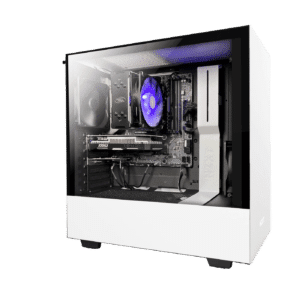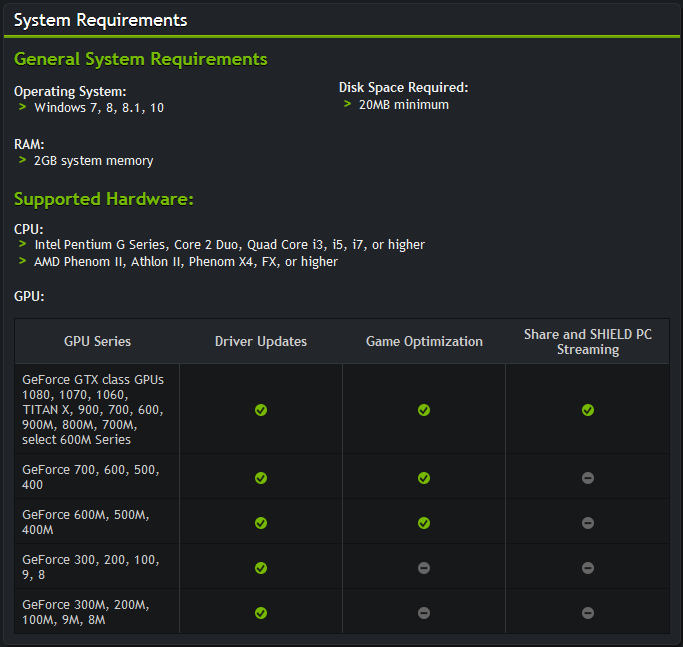How to Build a Streaming PC - Essential Requirements for Smooth Live Gaming and Content Creation
In today's digital age, streaming has become a popular way for gamers, content creators, and professionals to share their experiences with a global audience. To ensure a seamless streaming experience, it's crucial to understand the streaming PC requirements necessary for smooth performance. This guide will detail the key components and tips to build or upgrade a PC optimized for streaming, helping you achieve professional-quality broadcasts.
Understanding the Basics of Streaming PC Requirements

Before diving into hardware specifics, it’s important to grasp what streaming PC requirements mean for your setup. A streaming PC is a computer configured to run games or applications while simultaneously encoding and broadcasting the content to platforms like Twitch, YouTube, or Facebook Live. The burden on your PC's hardware is significantly higher with streaming, as it demands powerful processors, graphics cards, and fast memory to handle multitasking efficiently.
A well-balanced streaming PC must be capable of running high-quality games or applications while encoding video streams in real-time. Under-specifying hardware can result in lag, dropped frames, and poor-quality broadcasts, negatively affecting viewer experience and engagement. Conversely, over-investment can lead to unnecessary expenses; thus, understanding the optimal requirements is key.
How To Identify Your Streaming PC Requirements - Key Components and Recommendations

When building or upgrading a streaming PC, specific components need to be prioritized to meet the demands of live streaming. Here’s a breakdown of the core components and their ideal specifications:
CPU - The Heart of Your Streaming Setup
A high-performance CPU is essential for smooth multitasking, encoding, and gaming simultaneously. Modern multi-core processors such as Intel i7/i9 or AMD Ryzen 7/Ryzen 9 provide the processing power necessary to handle complex tasks like realtime encoding without sacrificing gameplay performance.
Two paragraphs:
A robust CPU ensures that your system can manage both game rendering and streaming without bottlenecks. Streaming software like OBS or Streamlabs heavily relies on the CPU for hardware encoding, especially when using x264 encoding options, which demand more processing power. Therefore, investing in a powerful processor is a critical streaming PC requirement.
Additionally, a powerful CPU distributes processing loads more evenly, reducing crashes and lag spikes. Multi-core options with high thread counts provide the best future-proofing, allowing you to stream demanding titles or engage in multitasking seamlessly.
Graphics Card - For High-Quality Graphics and Video Encoding
The graphics card (GPU) plays a crucial role not only in rendering high-quality visuals but also in accelerating encoding tasks when utilizing hardware encoding options like NVENC or AMD VCE. A modern, dedicated GPU ensures crisp visuals and smooth stream performance.
Two paragraphs:
For streamers playing AAA titles or graphically intensive games, a high-end GPU such as Nvidia RTX 30 series or AMD Radeon RX 6000 series is recommended. These cards support high-resolution gaming and provide hardware encoding features that offload processing from the CPU, enhancing overall system performance.
Choosing a GPU with built-in hardware encoding capabilities is an excellent **streaming PC requirement for streamers seeking reduced latency, higher frame rates, and Improved stream quality without overburdening the processor. This dual functionality combines to produce a professional streaming experience.
Memory (RAM) - Speed and Capacity for Multitasking
Adequate RAM ensures your system can run multiple applications smoothly, managing both streaming software, games or applications, and other background tasks. Generally, a minimum of 16 GB of DDR4 RAM is suitable for most streaming setups, but 32 GB provides additional headroom for complex multitasking.
Two paragraphs:
Fast RAM contributes to quicker data access and better overall system responsiveness. For streaming purposes, opting for higher frequency RAM, such as DDR4-3200 or above, can improve performance, especially in CPU-intensive tasks.
Moreover, sufficient memory prevents your PC from slowing down during resource-heavy operations, reducing the risk of lag or dropped frames during live broadcasts. Listening to streaming PC requirements means balancing capacity and speed to optimize multitasking capabilities.
Storage - Reliable and Fast Data Access
Having the right storage options is vital for fast boot times, game loading, and quick access to streaming footage and media files. A combination of SSD (Solid State Drive) and HDD can offer both speed and capacity.
Two paragraphs:
An SSD as your primary drive ensures instant system responsiveness and fast loading of streaming software and games. NVMe SSDs, in particular, provide the fastest data transfer rates, which is beneficial when working with large video files or managing multiple streams.
Secondary storage like an HDD provides ample space for recording streams, backups, and media libraries. The streaming PC requirement here is to prioritize fast, reliable storage solutions that keep your workflow seamless and prevent latency issues during broadcasts.
Additional Hardware Considerations
Apart from core components, other hardware elements like a quality power supply, efficient cooling, and a good capture card are vital. A stable power supply prevents hardware failures, while proper cooling maintains component longevity and performance. For streamers using a dual-PC setup, a dedicated capture card such as Elgato or AVOption can significantly improve video quality and reduce latency.
Special Tips and Tricks to Optimize Your Streaming PC Performance
Optimizing your setup maximizes efficiency and broadcast quality. Here are some tips and tricks for boosting your streaming PC's performance:
- Prioritize Hardware Encoding: Use hardware encoding options like NVENC or AMD VCE to offload processing from your CPU, resulting in smoother gameplay and higher-quality broadcasts.
- Update Drivers and Software: Regularly update GPU drivers and streaming software to benefit from performance improvements and security patches.
- Adjust Bitrate and Resolution Settings: Tailor your bitrate and resolution settings based on your upload bandwidth and system capabilities for optimal stream quality.
- Optimize Network Connection: Use wired Ethernet connections rather than Wi-Fi to minimize latency and packet loss during live streaming.
- Use a Dual-PC Setup: If possible, dedicate one PC for gaming and another for streaming, reducing the load on a single machine.
Additional Tips for Streamers
- Test different configurations before going live to find the best balance between quality and performance.
- Keep unnecessary background processes to a minimum.
- Use high-quality peripherals like microphones and cameras for professional appearance.
- Regularly defragment or optimize storage devices to maintain speed and efficiency.
- Monitor system temperatures and hardware health to prevent overheating and crashes.
Key Facts to Remember About Streaming PC Requirements
- The heart of your streaming setup is a multi-core CPU with high processing power.
- Hardware encoders like NVENC help offload processing, improving stream quality.
- Fast RAM and SSDs contribute to smooth multitasking and quick data access.
- Proper cooling and a reliable power supply are key to hardware longevity.
- A dual-PC setup can significantly enhance stream performance and quality.
FAQs About Streaming PC Requirements
How much RAM do I need for streaming?
A minimum of 16 GB of DDR4 RAM is recommended for standard streaming setups. For more intensive multitasking or high-resolution streaming, 32 GB is advisable for optimal performance.
Can I stream with a mid-range PC?
Yes, but you need to optimize your settings, possibly lower your resolution or bitrate. Investing in a dedicated GPU with hardware encoding and a decent CPU will greatly improve your streaming quality.
Is a dual-PC setup necessary for streaming?
While a single PC can handle streaming and gaming, a dual-PC setup is ideal for high-quality streams, reducing the performance load on a single machine and providing cleaner, more professional broadcasts.
What is the most important component for streaming?
The CPU is arguably the most critical component, as it handles encoding and multitasking. However, a balanced system with a good GPU and sufficient RAM is essential for a smooth experience.
How can I improve my streaming quality?
Use hardware encoders, upgrade your internet connection, optimize software settings, and ensure your hardware meets or exceeds the streaming PC requirements outlined above.
Conclusion
Building or upgrading a streaming PC requires attention to key hardware components that collectively ensure smooth, high-quality broadcasts. Prioritizing a powerful CPU, a capable GPU with hardware encoding features, ample fast RAM, and reliable storage can significantly impact your streaming experience. Additionally, employing optimization tips like hardware acceleration, network improvements, and software updates further enhances your stream quality. Whether you're a beginner or a professional streamer, understanding and meeting these streaming PC requirements is essential to produce engaging and seamless live content that attracts and retains viewers.